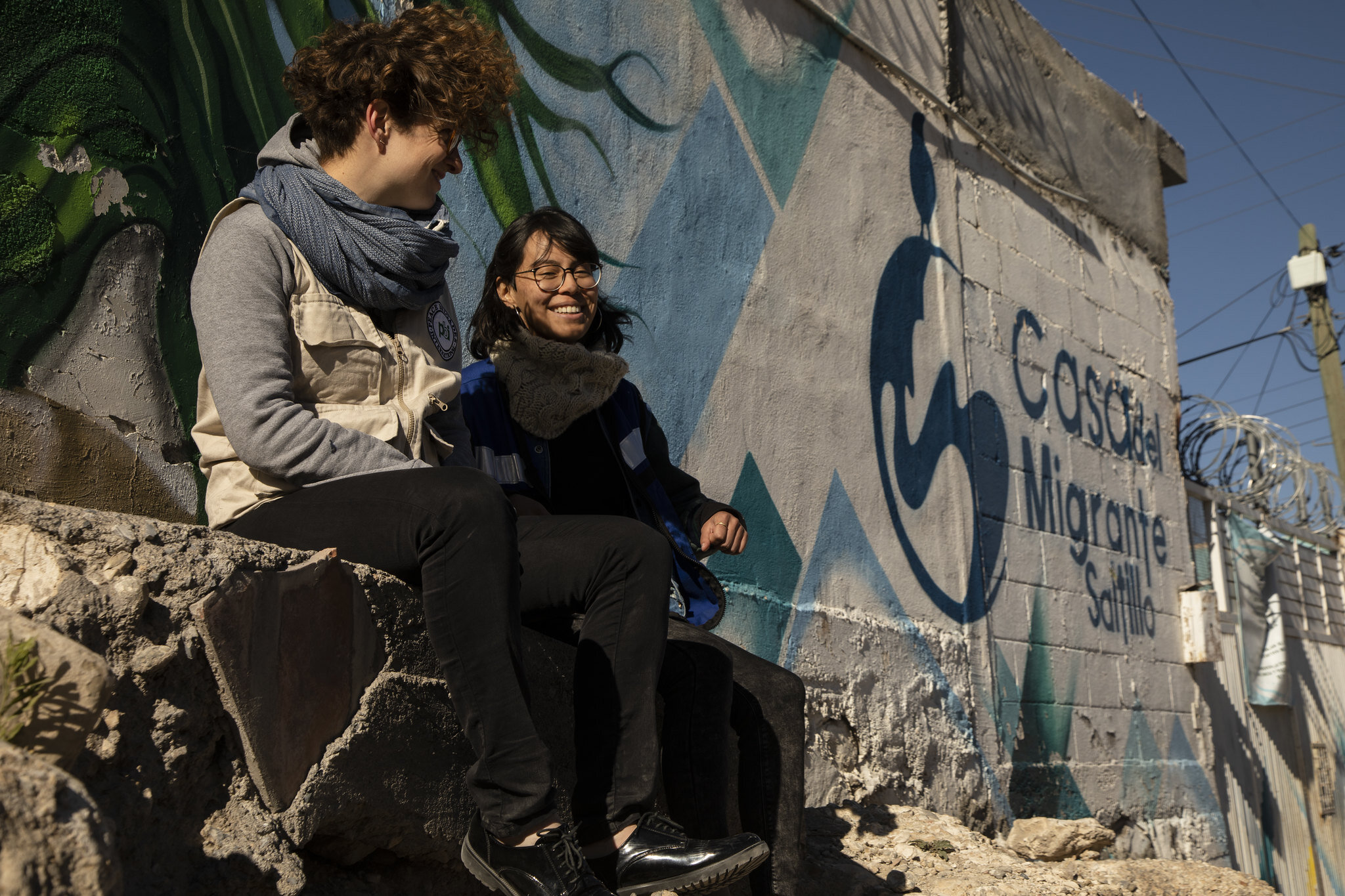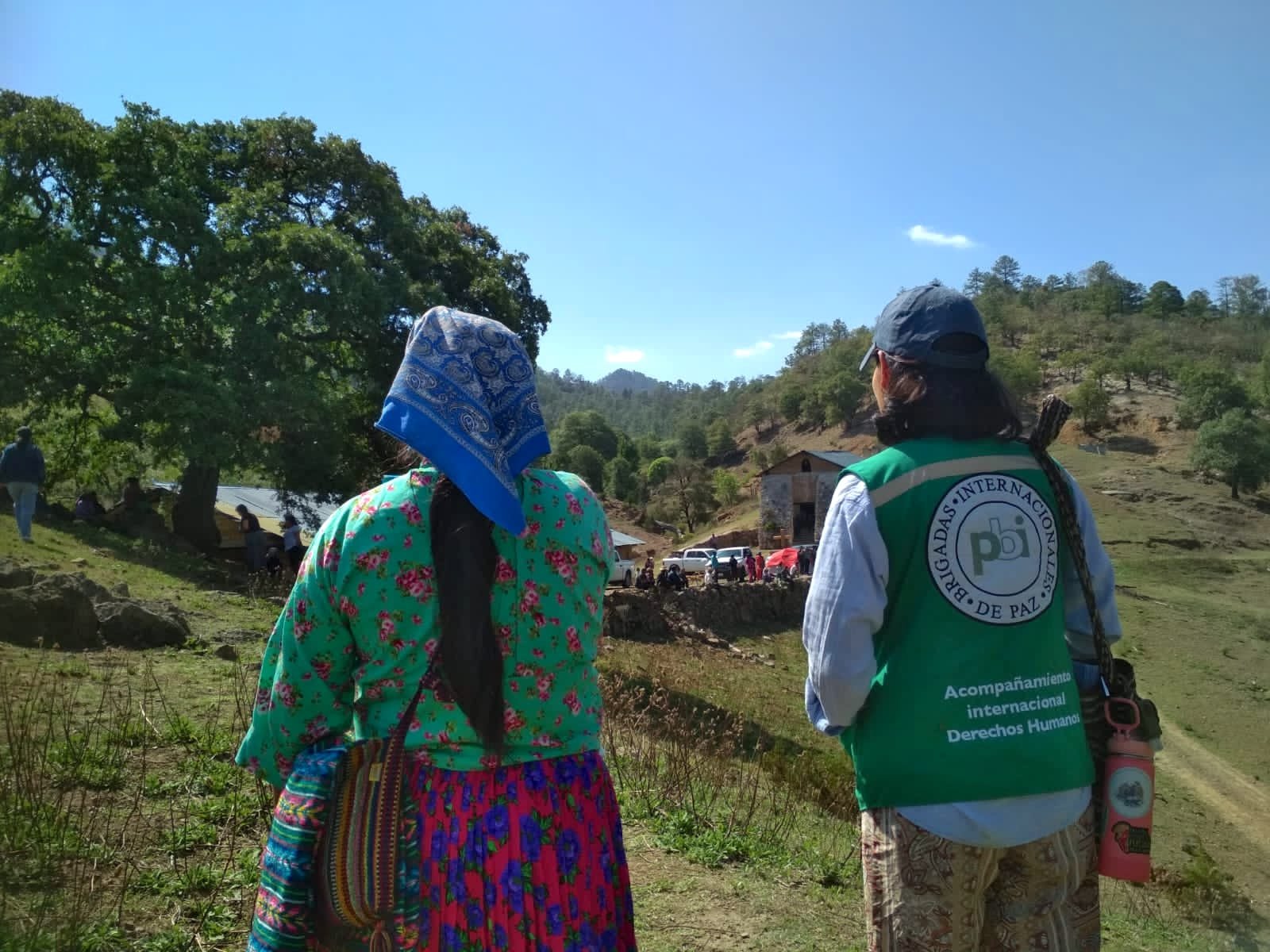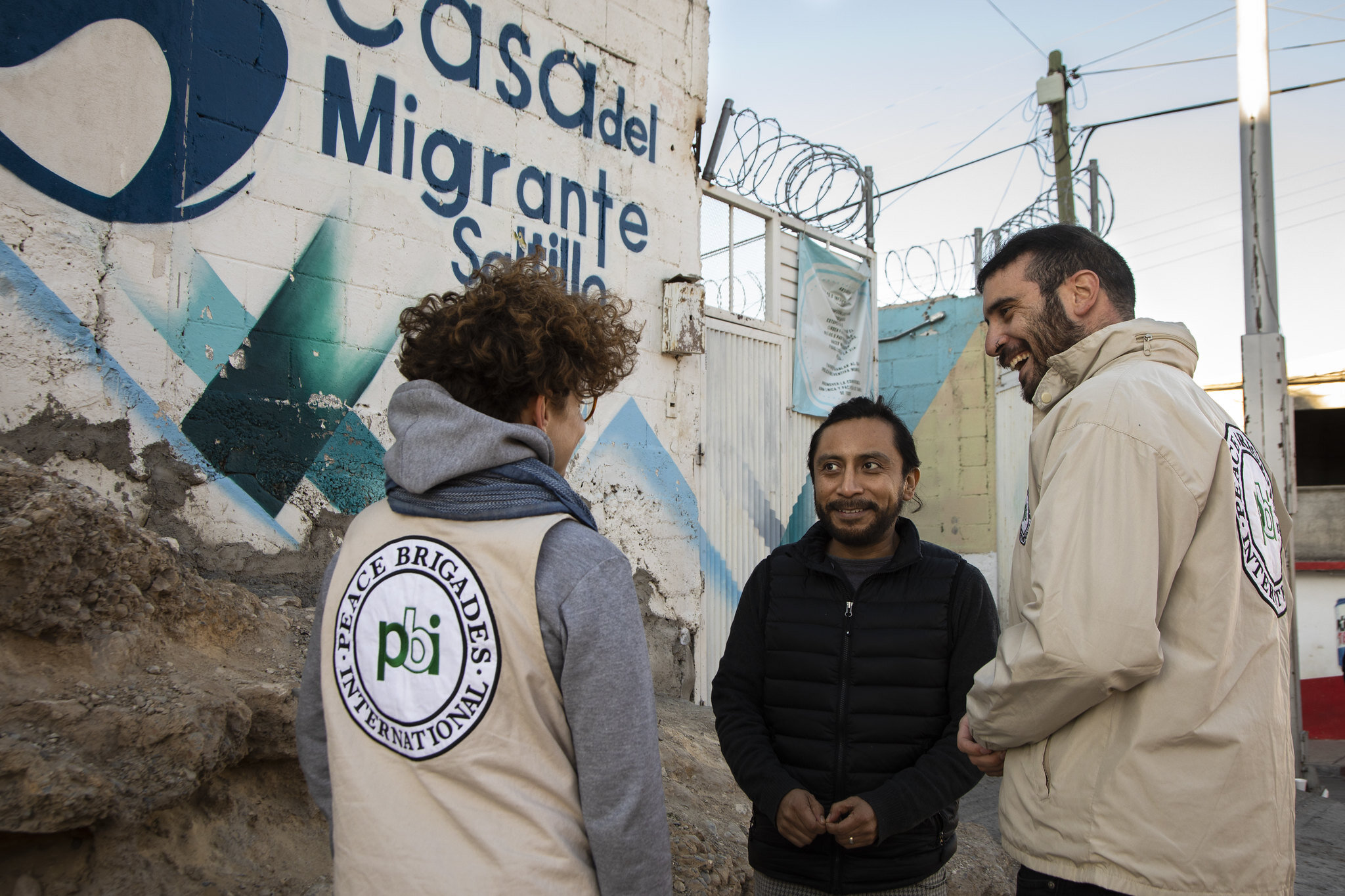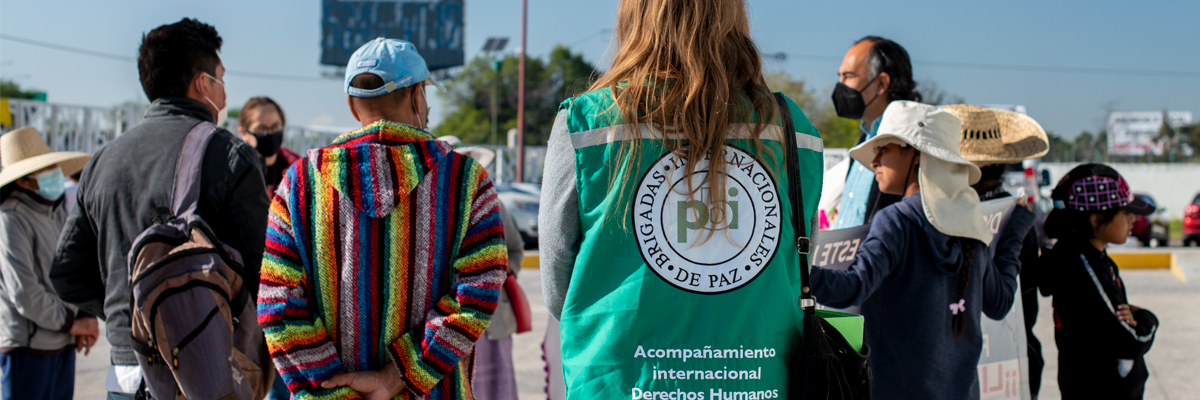
Protective accompaniment
International protective accompaniment is a strategy pioneered by PBI for protecting human rights defenders and communities whose lives and work are threatened by political violence.
PBI sends teams of volunteers to stand shoulder to shoulder with human rights defenders, deterring violence, persecution and even assassinations. This remarkable display of international solidarity makes PBI unique among international human rights organisations. Over four decades, it has protected the lives and liberty of hundreds of human rights defenders in 11 countries.
Those accompanied have included indigenous communities, environmental organisations, lawyers, women’s organisations, trade unions and relatives of people who were forcibly disappeared. Despite facing daunting threats, PBI's presence has enabled these inspiring activists to continue and expand their work - defending the vulnerable, promoting fundamental rights and freedoms, and laying the groundwork for peaceful societies.
In the more traditional model of international human rights, pressure is usually directed at the top. However, responding to systematic human rights abuses requires engaging with authorities at local, national and international levels.
PBI's constant presence on the ground means that we are one of the only organisations that can advocate at all levels - from the soldier at a local checkpoint to the leaders of the UN.
What difference does accompaniment make?
Protection
The presence of international volunteers protects threatened human rights defenders by raising the stakes for potential attackers.
The premise of accompaniment is that there will be an international response to whatever violence or potential violence the volunteer witnesses. Behind such a response lies the implied threat of diplomatic and economic pressure. The accompaniment volunteer is the embodiment of international human rights concern, a visible message to those using violence that their actions will have consequences.
When defenders face imminent and serious threats, accompaniment is sometimes round the clock. In other situations, volunteers stay with threatened communities or remain in the offices of organisations, and accompany threatened activists when they travel. Another form of accompaniment is regular phone calls to organisations to check on their safety.
Moral support
The protective presence of PBI volunteers provides moral support to threatened human rights defenders, giving them the confidence to continue their vital work.
The activities of human rights defenders in pursuit of social justice, nonviolence and the rule of law often challenge the interests of powerful elites. Besides violence, defenders often face defamation and stigma within their home countries. An international presence can be a source of hope. It assures defenders that they are not alone, that their work is important and that their suffering will not go unnoticed.
Strength
Accompaniment collaborates for international peace and human rights movement.
Standing shoulder to shoulder with threatened human rights defenders gives accompaniment volunteers a powerful first-hand experience that becomes a source of inspiration to themselves and others upon their return to their home countries.








